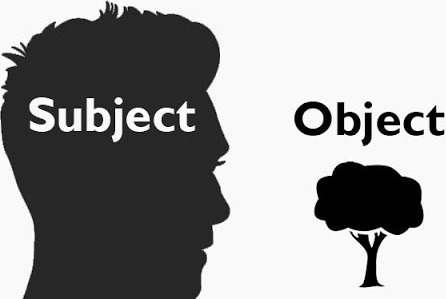What’s often characteristic of many theists in their debate with non-believers is their faith in the ideas of Aristotle.
Soon after Aristotle came, more thinkers espoused and expanded his ideas. Aquinas, for example, gave rise to Thomistic Christianity.
Advocates will put Aristotle and his ideas forwards yet fail to prove he was correct, merely presupposing he was.
The arguments for God fail to acknowledge that many of his ideas have been found wanting or wrong.
Potentiality, maximally great, first cause are they true? They’re metaphysical ideas; how can one prove to demonstrate them?
External First Mover?

God, so claimed, is an agency or will that exists outside the cosmos. But why does the cause of the universe have to be outside the universe?
To exist outside the Cosmos is to claim it’s like a box; how does that work? The Cosmos is not a box; there is no outside / inside because we are the cosmos. We are part of it, not in it.
We make dualities; we think of inside, outside, up and down, before, after. Yet where is the evidence there is outside? What does that even mean?
The theists imply the First Mover or Unmoved Mover is an agency separate from the moved. It goes to the Subject-Object duality in western philosophy.
That’s not what Buddhism, Hinduism and Daoism are getting at. In the Design Argument, I point out there is no separation between subject and object or cause and effect; they’re connected.
First cause
Theists claim that because the universe had a beginning, there must have been a cause for the beginning. They claim you can’t have an infinite regress following the chain backwards, so there must be a first cause—the unmoved mover like Aristotle claims.
It rings up a whole number of questions. Firstly Theists resort to causality to explain the cosmos, only to give up on causality to describe God. Why are they pleading a special case?
Theists think causality work in linear chains. ‘This leads to this, then this.’ In addition to Aristotle, they often bring up the scientific view of the Big Bang as the beginning of the cosmos.
All the above leads to the claim the First cause arguments work.
However, modern cosmology is no longer certain the Big bang theory was the beginning of the cosmos; it might be eternal. Cosmologists no longer use Aristotle to explain the cosmos.
We tend to think of causes as preceding – Diachronic causality. An example is billiard balls colliding; one moving object hits another, which then moves. Two event causation.
But there is also Synchronic causality, multiple causes and conditions acting in concert, a nexus, even acting upon each other. In Buddhism, this is called Dependent Origination; for every phenomenon, there is no ‘first cause’ (singular).
Simple linear causality is useful, but it’s also myopic. Objects around us have multiple causes and conditions; it can be the same with the cosmos.
Beginning?
Onto beginnings. What is an example of something beginning to exist?
Intuition says objects have beginnings because they exist now, but at some point in the past, they didn’t.
However, you run into problems when you try to pin it down.
When did world war two begin? That depends on who you ask. When and where does a cake begin to exist? When it’s in the mixing bowl, fully assembled, or when it’s hot out of the oven?
Something a little more abstract. Consider a greyscale.
Where does black end and white start (or begin)?

‘We define where beginning and ends are; the threshold is our creation.’
Whereas before, it was a collection of ingredients we now call a cake, that’s a beginning. But it’s still unclear where that change takes place.
What happens is what we see is the stuff of the cosmos being rearranged and changed; we arbitrarily pick where these boundaries lie. Beginning and endings are, therefore, ‘man-made’.
Existence has no beginning because the Cosmos is not required to adhere to our cherry-picked boundaries.
The confusion lies here because we’re hitting on a paradox—The continuum paradox and the Sorites paradox or the Ship of Theseus.
Is the ship still the same ship as the parts are replaced? For the greyscale, as we move left to the right, where do we say this is now white?
Those who argue for God don’t realise beginnings are artificial. We chop up reality into pieces, and we chop time into chunks. Then we forget we’re the ones who chop it up.
The Cosmos is eternal, limitless, and unbounded without artificial boundaries of human artifice.
Agency?
Another issue with using Aristotle is the implication of agency that is then used to support the ideas of a cosmic agency.
With Aristotle’s ‘Unmoved Mover’, it’s unclear if he was implying agency.
By giving God human-like agency, you diminish God by squeezing God to fit inside the human imagination and thought.
It also ignores the fact that most of what we do is not by an agency but by subconscious habits or instincts. God is imagined as consciousness, with the agency because were focusing too much on our conscious mind, ignoring our subconscious, what I call Fetishising our consciousness LINK.
In this image, God only acts with an agency or will, but we humans can operate in a way God cannot without will, through spontaneous, unplanned instinct.
Anthropomorphising non-human things risks forgetting it’s fiction and naively claiming such ideas are facts.
Closing thoughts
The ambiguity of Aristotle’s Unmoved mover lends itself to misappropriation.
What did Aristotle himself mean by it? Just because some people have merged the concept with all, all-powerful agency speaks more to their leaps in imagination than the truthfulness of Aristotle’s’ ideas.
